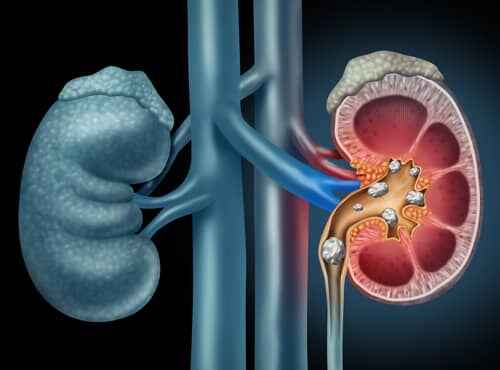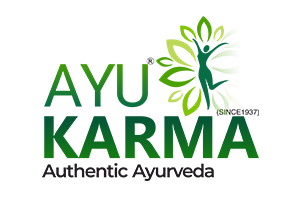Ayurvedic Treatment for Kidney Stones
Ayurvedic Remedies, Therapies, and Advice for All Your Health Issues, Recommended by Expert Health Professionals
What is Kidney Stones?

Kidney stones are hard yet tiny stones that form in one or both of your kidneys. The stones in the kidneys are primarily the result of certain minerals in your urine. They may vary in size -ranging from a size of a sand granule to as large as a pea. In just a few cases, kidney stones can be as big as golf balls. Such large stones may get stuck in the parts of the kidneys and affect the urine flow, causing severe pain or bleeding.
Small stones may pass through the urinary tract on their own, causing very mild pain.
Depending on the condition, you may need a treatment approach such as the need for medication or home remedies. Sometimes, drinking too much water can allow the stone to pass on its own.
If you are experiencing signs of kidney stones, including severe pain or bleeding, seeking medical care is required. Your doctor will recommend preventive measures to reduce the risk of recurrent kidney stones.
Signs
Calcium stones
Calcium stones are the most common type of kidney stone. They can be calcium oxalate and calcium phosphate. Often the cause is too much calcium in the urine, but for some other reasons also such stones may develop.
Uric acid stones
Uric acid is a waste product that comes from a buildup of uric acid. Uric acid crystals do not dissolve well in acidic urine so instead, they start to build up in the urine. The prime cause could be eating a diet rich in purines, animal protein, and low in fruits and vegetables, or medical conditions like diabetes, gout, chronic diarrhea, etc.
Struvite/infection stones
The cause of struvite or infection stones is chronic urinary tract infection. The trigger of some bacteria may make the urine less acidic in nature and more alkaline. Struvite stones appear to be very large as they grow fast in favourable conditions. People who get chronic UTIs more frequently or people with poor bladder emptying due to neurological disorders are at risk of developing kidney stones.
Cystine stones
Cystine is a type of amino acid found in certain foods. When your body has too much cystine, it means the kidneys are not able to reabsorb cystine from the urine. When high amounts of cystine are found in the urine, it results in the stone buildup. They may begin in childhood.
Symptoms
Kidney stones primarily do not cause any problem until it moves around within the kidney or moves into the ureters- the tubes connecting the kidneys and the bladder.
If kidney stones get stuck in the ureters, it may affect the urine flow and cause the ureter to spasm, which can be very painful.
At that point, you may experience these signs and symptoms:
- Severe, sharp pain in the side and back, below the ribs
- Pain that radiates to the lower abdomen and groin
- Pain that radiates and fluctuates in intensity
- Pain or burning sensation while urinating
Other signs and symptoms may include:
- Pink, red or brown urine
- Cloudy or foul-smelling urine
- Urinating more often than usual or urinating in small amounts
- Nausea and vomiting
- Fever and chills
Causes
There is no definite cause of kidney stone, and in fact, many factors may increase the risk of stones, such as:
Family history: If anyone in your family has had kidney stones in the past, you are likely to develop stones as well. Further, if you had stones before, there is an increased risk of stones in the future.
Dehydration: Not drinking enough water each day can increase your risk of stones. People who live in dry climates and those who sweat a lot are especially prone to kidney stones.
Obesity: High body mass index (BMI) than you should have is also a risk.
Certain diets: Consuming a diet that has a high amount of protein, salt, and sugar may increase the risk of some types of kidney stones. Too much salt in your diet increases the amount of calcium in your kidneys.
Digestive diseases and surgery: Gastric bypass surgery, chronic diarrhea, inflammatory bowel disease, can bring changes in the digestive process. This affects the absorption of calcium and water, thus, increasing the amounts of stone-forming substances in the urine.
Other medical conditions: Including renal tubular acidosis, cystinuria, hyperparathyroidism and repeated urinary tract infections also, can increase your risk of kidney stones.
Certain supplements and medications: Consuming vitamin C, laxatives, dietary supplements, medicines, calcium-based antacids, etc., may increase the risk of kidney stones.
Ayurvedic treatment for kidney stones
In Ayurveda, renal or kidney stones are one of the common problems related to urinary conditions. As per Ayurveda, kidney stones are called Ashmari or Mootrashmari, which means stone or calculi. Kidney stones are the major reason for intense pain in the abdominal or back area. The stone could be anywhere in the urinary system- kidneys, ureter, bladder, and urethra.
Ayurveda has many holistic procedures and therapies to reflect on the vitiation in the doshas and improve body function. Panchakarma is one such approach to cleanse the body of the stored toxins and restore the body’s innate healing ability.
Sometimes, surgery is also needed, but this is very rare. More than 95% of renal stones can be broken and get rid of without any surgical approach if you opt for ayurvedic remedies and therapy.
Herbal concoctions in the medicines are also helpful in the management of stones in the kidneys. Most herbal choices in the medicines tend to be diuretic in nature, so that stone may pass out through urine only.
Along with the therapies and medicines, we also suggest to our patients a healthy diet so that their kidneys are not burdened.
At AyuKarma, we are committed to helping our patients using our herbal approach. Our dedicated team of doctors are there to help you out with their ayurvedic knowledge and years of experience.
Consult us today for more information.
Approved by

Certificate no- AH-2022-0145
FEB 23,2022 - FEB 22,2025
